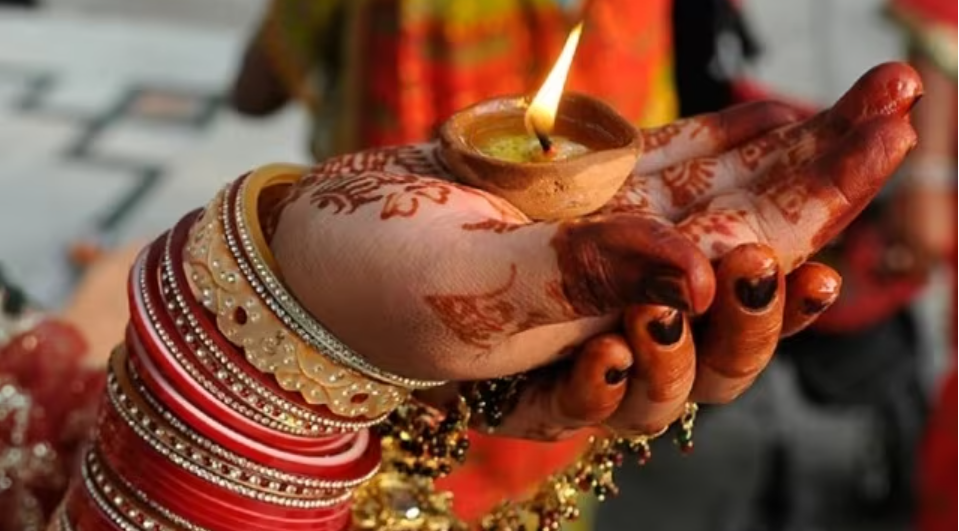Introduction:
Karwa Chauth, a significant Hindu festival predominantly observed by married women across India, exemplifies the deep-rooted traditions and customs of the culture. Falling in the Hindu month of Kartik, typically in October or November, this auspicious day holds immense importance and reverence, symbolizing the strong bond between husband and wife.

The Rituals:
The day of Karwa Chauth involves a day-long fast observed by married women, wherein they abstain from food and water from sunrise until the sighting of the moon in the evening. The fast is undertaken with the belief that it ensures the longevity, prosperity, and well-being of their spouses. The fast is traditionally broken after the moonrise, where women seek the blessings of the moon for the welfare and longevity of their husbands.
Preparations and Customs:
Days prior to Karwa Chauth, women engage in intricate preparations, adorning themselves in splendid traditional attire. They gather items such as karwas (earthen pots), cosmetics, traditional sweets, and other essential puja items. Married women come together for community gatherings or ‘sargi’, where mothers-in-law often provide an assortment of delicacies before the fast commences. The day is marked with enthusiasm, with women applying henna or mehndi and exchanging heartfelt gifts.
Significance and Symbolism:
Karwa Chauth is not merely a ritual but a manifestation of the deep bond and devotion shared between married couples. It symbolizes love, dedication, and the unbreakable bond between husband and wife. The rituals and practices vary in different regions, each adding its unique touch to the celebration.
Contemporary Adaptations:
Over time, Karwa Chauth has seen contemporary adaptations. It has evolved into a celebration of togetherness, with husbands also showing their appreciation by participating in the rituals and supporting their wives throughout the day. Additionally, the festival has transcended its traditional boundaries, resonating with diverse cultural groups and individuals beyond marital ties, celebrating love and commitment in various forms.
In Conclusion:
Karwa Chauth stands as a profound cultural tradition that highlights the sanctity of marriage and the enduring bond between spouses. Beyond its religious and customary significance, it celebrates love, togetherness, and the unbreakable commitment between married couples, reflecting the richness and diversity of Indian culture and traditions.